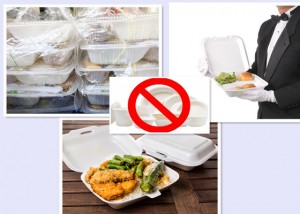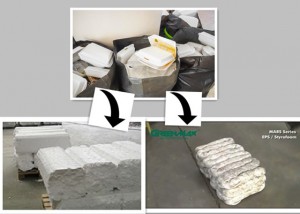The widespread use of EPS (Expanded Polystyrene) has caused more and more serious environmental problems. It is one of the most widely used thermoplastics in the world and is almost difficult to degrade, which becomes one of the targets of many governments, as a result, a new regulation to prohibit the use of EPS products such as disposable polystyrene lunch boxes in many restaurants and grocery shops.
However, the government’s ban of EPS products has faced strong opposition from the plastics industry. They claim that it will increase operating costs of the company which sells takeout food, and as a result, these costs will be finally passed on to costumers, which create unnecessary burdens to enterprises and individuals.
Though the prohibition works in deed, yet not all environmentally harmful substances should be banned, especially EPS, as the prohibition would result in a lot of waste of resources, and even not beneficial to industrial and economic development. On the contrary, we should seek more optimized solutions, such as recycling EPS, by which the utilization of EPS can be greatly improved, and at the same time, it avoid environmental pollution to a certain extent.
EPS recycling has won its increasingly popularity to dispose the waste polystyrene foam boxes. However, people may meet several problems to recycle polystyrene because of its large volume and light weight, and it’s not always clean enough. Therefore, the first step for recycling is to reduce the foam volume. After compressing or melting the polystyrene foam, it will be easier to store and transport.
EPS recycling is becoming more and more important, especially among the plastic recyclers. Nowadays, the price of the recycled foam is quite competitive that it attracts many people to join in the EPS recycling industry, and people are gradually aware of that EPS recycling turns out to be a better solution instead of prohibition.
